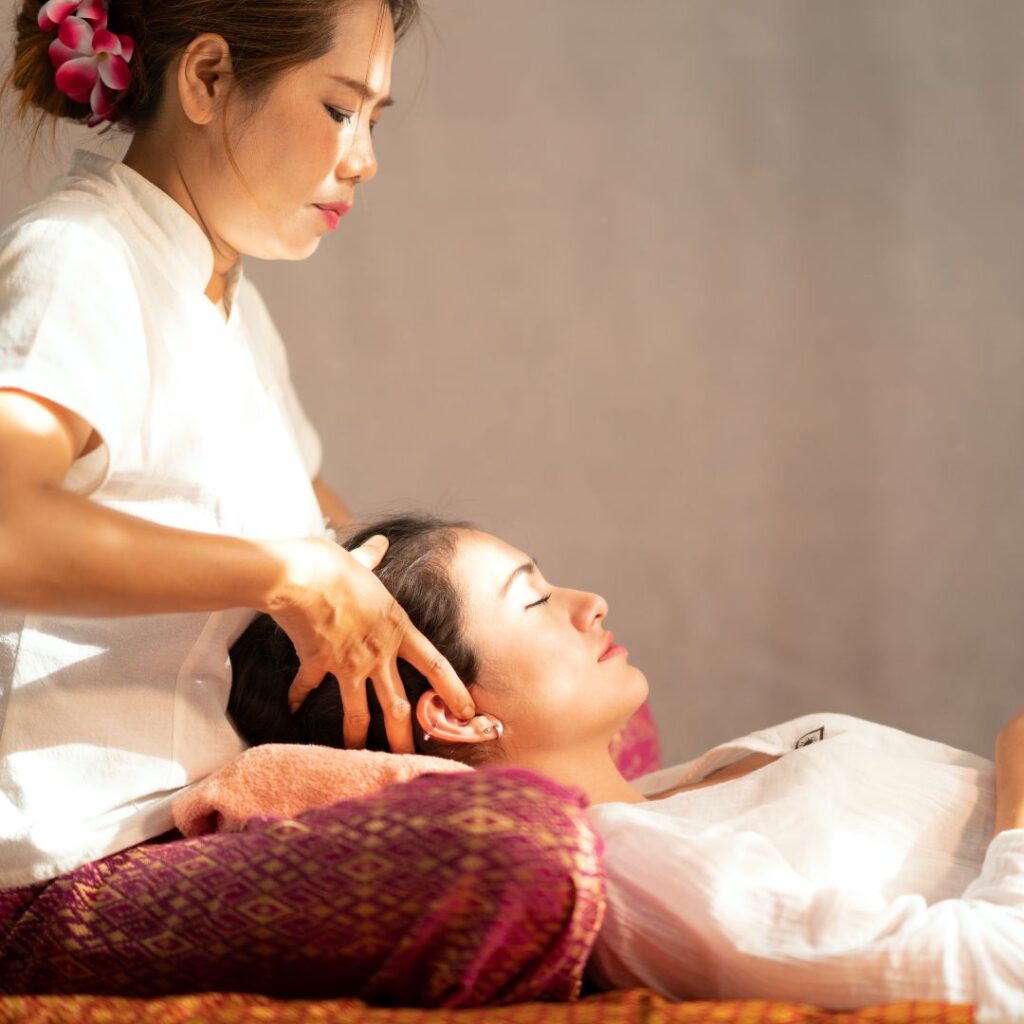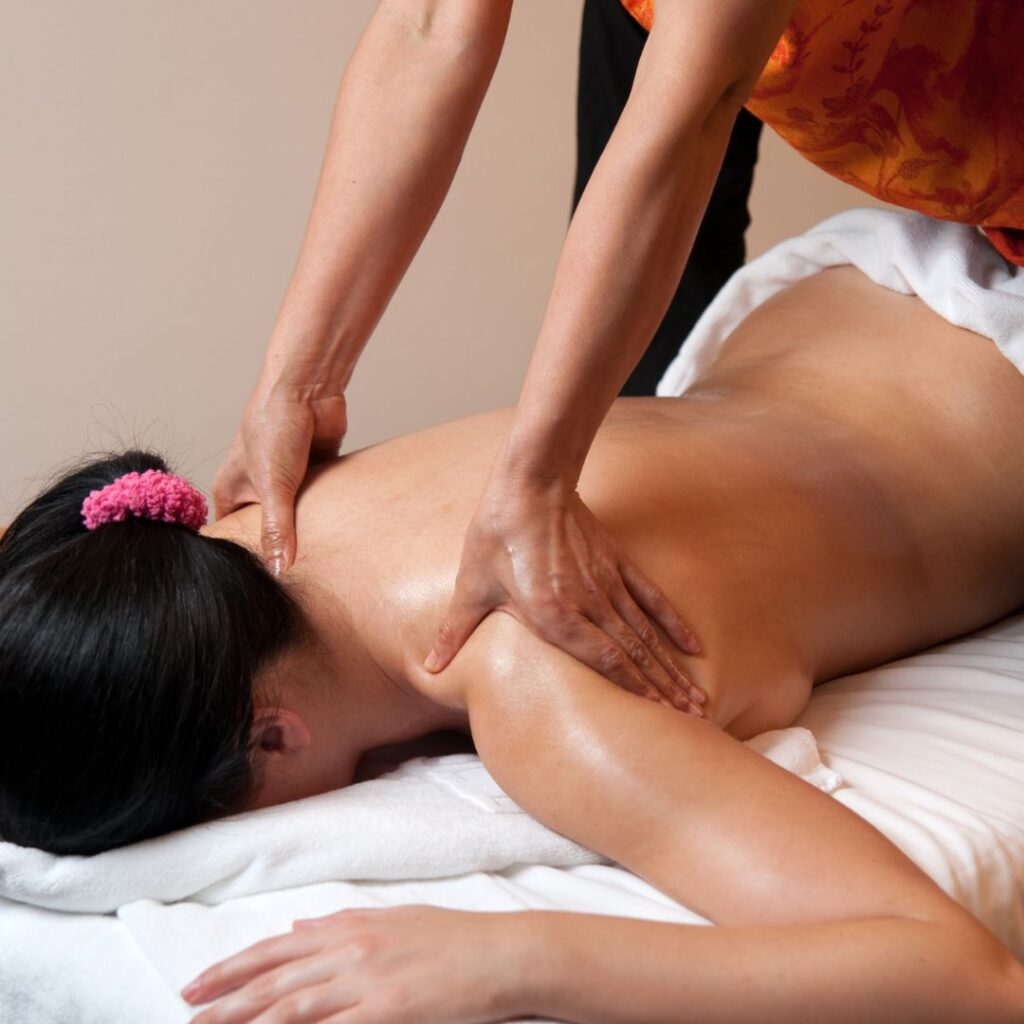Thai massage, a centuries-old healing art, is deeply rooted in the traditions of Thailand, blending elements of acupressure, yoga, and meditation. This therapeutic massage is known for its dynamic movements, deep stretches, and rhythmic pressure applied along energy lines or sen lines, which are believed to correspond to the body’s meridian system.
Recent research into the science behind Thai massage has uncovered a number of physiological and psychological benefits, some of which align with traditional claims, while others offer new insights into its effects. Here’s an overview of the key benefits of Thai massage supported by scientific research:
1. Pain Relief and Muscle Tension Reduction
One of the most frequently cited benefits of Thai massage is its ability to relieve pain and reduce muscle tension. Research has shown that Thai massage, which involves a combination of stretching, pressure, and mobilization, can help alleviate chronic pain conditions, such as lower back pain, neck pain, and tension headaches.
- Study Evidence: A randomized controlled trial published in the Journal of Alternative and Complementary Medicine in 2011 found that Thai massage significantly reduced pain and disability in patients with chronic low back pain compared to standard care.
- Mechanism: The deep stretches and application of pressure are thought to stimulate the release of endorphins (natural painkillers), enhance blood flow, and relax the muscle tissues, all of which contribute to pain relief.
2. Improved Flexibility and Range of Motion
Thai massage incorporates stretching similar to assisted yoga, which can help improve flexibility and range of motion. The therapist uses their hands, feet, knees, and elbows to gently stretch the client into various yoga-like postures.
- Study Evidence: A study in BMC Complementary Medicine and Therapies in 2016 demonstrated that Thai massage was effective in improving flexibility and joint mobility. Participants reported improved flexibility and reduced stiffness in both the upper and lower body after a series of Thai massage sessions.
- Mechanism: The stretching aspect of Thai massage enhances the flexibility of the muscles and joints by increasing the elasticity of connective tissues and reducing muscle tightness. It also improves circulation, which helps to nourish and hydrate tissues.

3. Stress Reduction and Relaxation
Thai massage is often used to promote relaxation and reduce stress. It has been shown to activate the parasympathetic nervous system (the body’s “rest and digest” system), which helps reduce the body’s stress response.
- Study Evidence: Research published in the Journal of Bodywork and Movement Therapies in 2013 found that Thai massage significantly decreased cortisol (the stress hormone) levels and heart rate, suggesting a strong relaxation effect.
- Mechanism: The rhythmic pressure and gentle stretches may trigger the body’s relaxation response by stimulating the vagus nerve, which helps lower heart rate and blood pressure. Additionally, the deep breathing encouraged during Thai massage promotes a calm, meditative state.
4. Improved Circulation and Lymphatic Drainage
The combination of stretching, pressure, and rhythmic movements used in Thai massage can improve blood circulation and stimulate lymphatic flow. This enhances the body’s ability to remove waste products and toxins while promoting overall health.
- Study Evidence: A study in the Journal of Physiological Science (2013) highlighted that Thai massage can improve blood circulation and increase the circulation of lymph, potentially aiding in the detoxification process.
- Mechanism: The pressure applied during Thai massage helps stimulate blood flow to tissues and muscles, while the stretches and rhythmic movements encourage lymphatic drainage. The improved circulation ensures that the body receives an increased supply of oxygen and nutrients while flushing out metabolic waste.
5. Enhanced Posture and Alignment
Thai massage can help correct postural imbalances and improve alignment by releasing muscle tension and promoting awareness of body positioning. This is particularly beneficial for people with desk jobs or those who suffer from poor posture.
- Study Evidence: A 2019 study published in Complementary Therapies in Medicine found that Thai massage improved posture in people with musculoskeletal discomfort, particularly in the shoulders, neck, and lower back.
- Mechanism: By targeting key muscle groups and fascia that contribute to poor posture, Thai massage helps to release tension and realign the body. The therapist’s use of pressure and assisted stretching may also encourage better body awareness, helping individuals become more mindful of their posture throughout daily activities.
6. Improved Mental Clarity and Emotional Well-being
In addition to physical benefits, Thai massage is thought to have psychological benefits. The meditative nature of the massage, combined with the release of tension, can improve mood, reduce anxiety, and promote mental clarity.
- Study Evidence: Research published in Complementary Therapies in Clinical Practice in 2017 found that Thai massage had a significant impact on reducing symptoms of anxiety and depression in individuals with chronic pain or stress.
- Mechanism: Thai massage, particularly when accompanied by deep breathing techniques, may help activate the parasympathetic nervous system, which plays a key role in relaxation. This can promote the release of neurotransmitters such as serotonin and dopamine, which improve mood and emotional balance.

7. Improved Sleep Quality
People who regularly receive Thai massage often report better sleep quality, potentially due to its relaxation and stress-reduction effects.
- Study Evidence: A study in the Journal of Alternative and Complementary Medicine (2015) found that Thai massage was associated with improvements in sleep quality, especially in people who experienced insomnia or difficulty relaxing at night.
- Mechanism: The relaxation and calming effects of Thai massage, particularly in reducing cortisol levels, help the body transition into a more restful state. The body may also benefit from reduced muscle tension, making it easier to fall asleep and stay asleep.
8. Improved Emotional and Spiritual Well-being
Thai massage is sometimes described as a holistic therapy that addresses not only the body but also the mind and spirit. The practice emphasizes the connection between physical and emotional health, and many people report feeling emotionally uplifted after a session.
- Study Evidence: Although more research is needed in this area, anecdotal evidence suggests that Thai massage helps people feel more connected to their bodies, which can lead to greater emotional well-being.
- Mechanism: The combination of physical touch, meditative breathing, and stretching encourages mindfulness and emotional release, allowing the body to release stored tension and stress. This can create a sense of balance and peace.
Conclusion: The Science of Thai Massage
The scientific research supporting Thai massage is expanding, and it confirms many of the benefits claimed by traditional practitioners. From pain relief to improved flexibility, better circulation, reduced stress, and enhanced well-being, Thai massage offers a multifaceted approach to health that can complement other therapeutic modalities.
Although more large-scale, high-quality studies are needed to fully understand the long-term benefits of Thai massage, the existing research highlights its potential as a therapeutic tool for improving both physical and mental health. Whether used to address specific conditions or simply as a way to relax and rejuvenate, Thai massage can offer a wealth of benefits for overall wellness.

